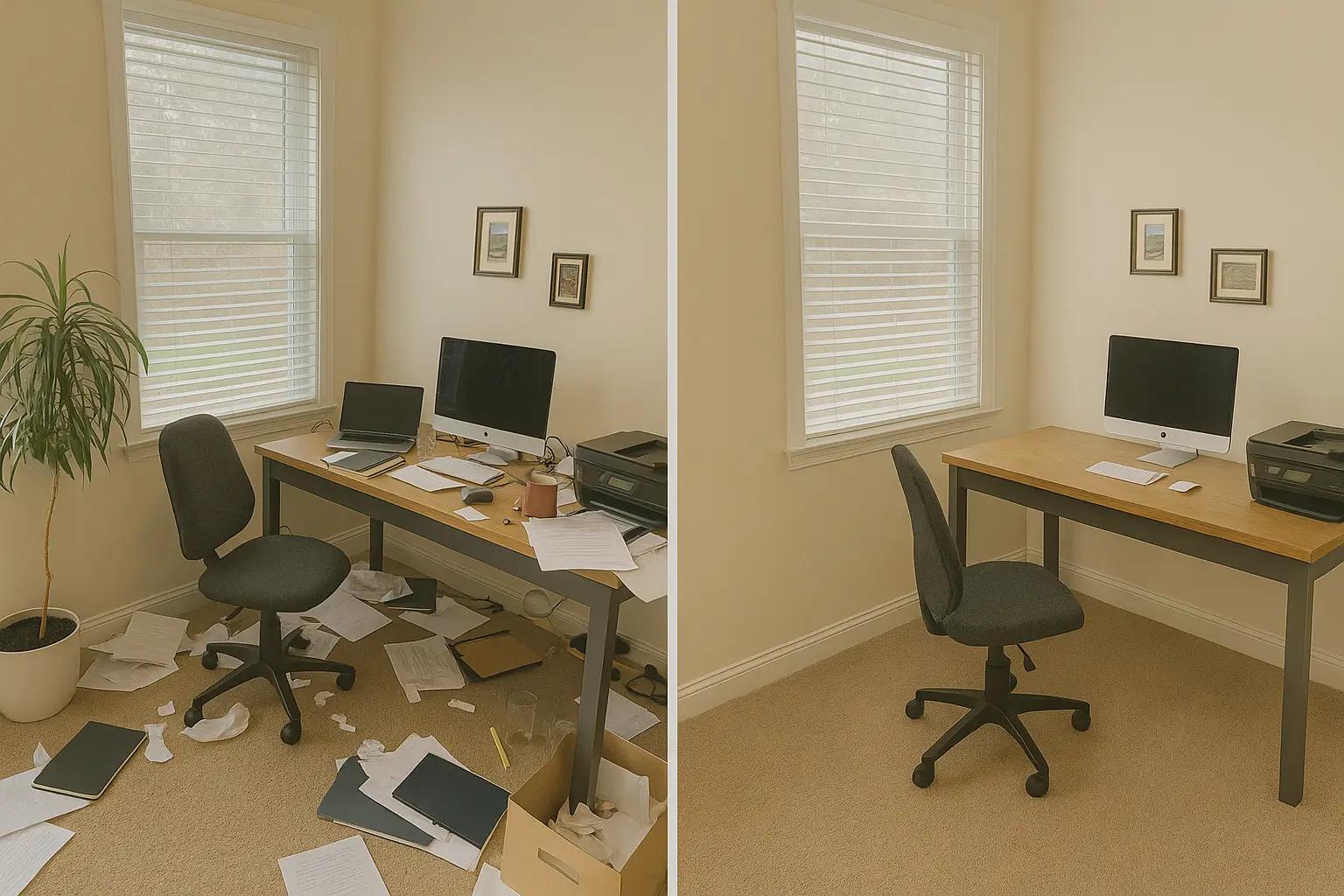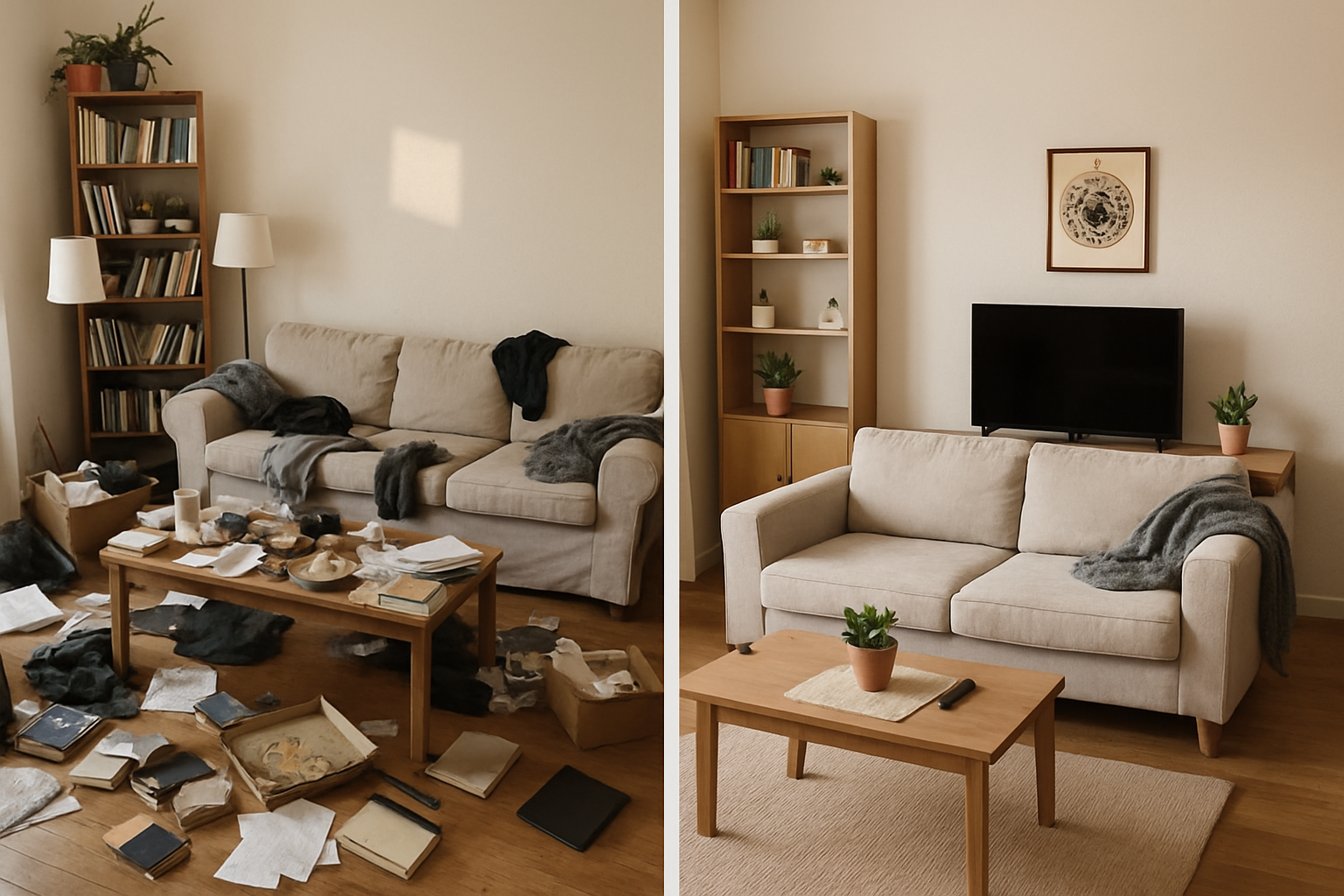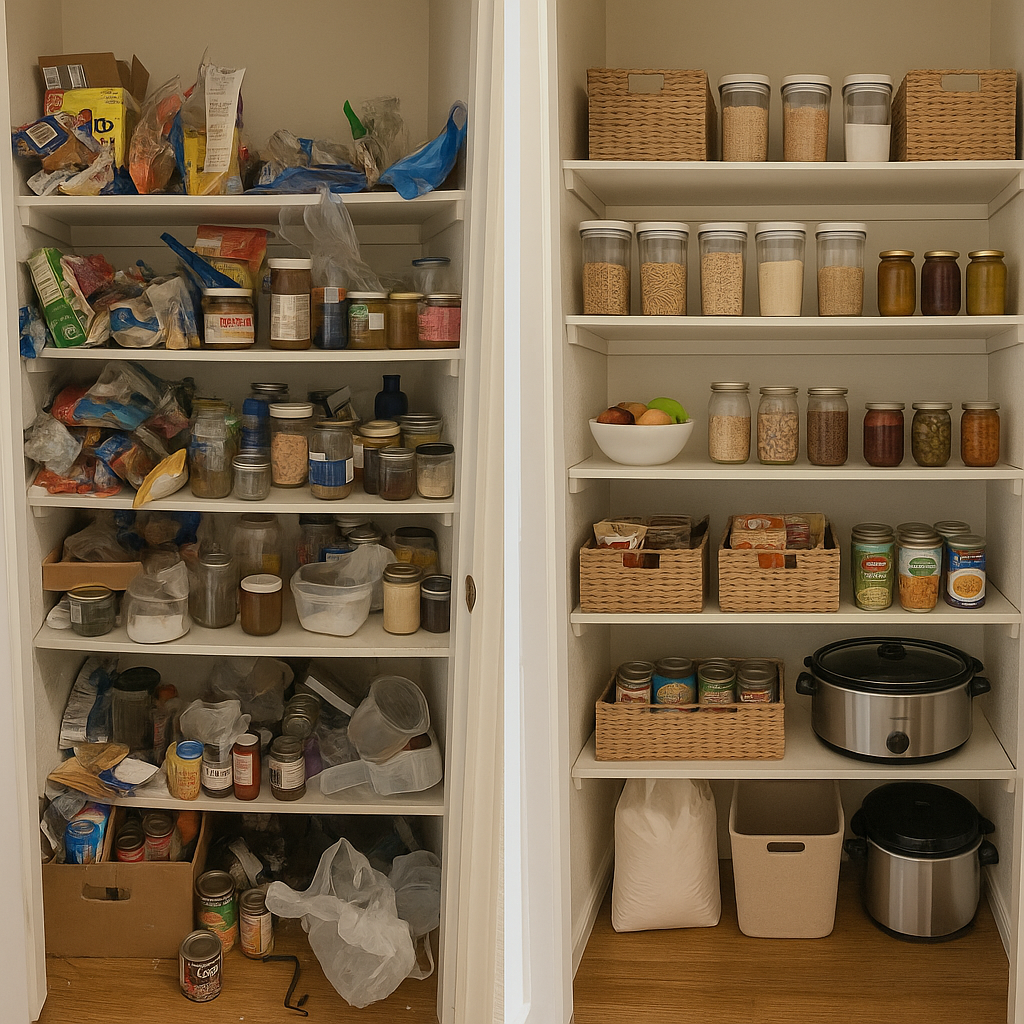🏠 Clarity or Cleanliness?
In a world overflowing with possessions, many are drawn to the promise of simpler living. Two popular concepts often come up—decluttering and minimalism.
While both promote simplicity and order, they’re not quite the same.
In Indian homes, where culture, traditions, and practical needs intersect, choosing the right approach matters. Do you need to be a minimalist to enjoy the benefits of a clutter-free home? Or is intentional decluttering enough?
Let’s explore what each concept truly means—and which one fits our Indian lifestyle better.
🧹 What Is Decluttering?
Decluttering is the act of removing items that no longer serve a purpose or bring joy. It focuses on function and freeing up space.
🟢 Key Characteristics:
- Flexible approach
- Keeps sentimental and useful items
- Focuses on usability, not aesthetic
- Ideal for busy families, joint households, and compact spaces
Example: Clearing out your wardrobe and keeping only what you love and use regularly—even if that includes 15 kurtis and 5 sarees.
🧘 What Is Minimalism?
Minimalism is a lifestyle philosophy that emphasizes living with the bare essentials. It’s not just about having less, but about being intentional with what you own.
🔵 Key Characteristics:
- Prioritizes “less is more”
- Often has a clean, neutral aesthetic
- Strong focus on detachment and simplicity
- Inspired by Western or Zen philosophies
Example: Owning one multipurpose dinner set, three neutral outfits, and no décor unless functional.
In The Indian Home Context
Indian households are diverse, often multi-generational, and deeply rooted in culture and rituals.
Why Minimalism Can Be Challenging:
- Cultural Sentimentality: Heirlooms, wedding gifts, puja items hold deep meaning.
- Festive Living: Diwali crockery, Holi water guns, or Navratri décor are seasonal but essential.
- Storage Habits: We tend to keep things “just in case”—extra blankets, Tupperware, or boxes.
- Shared Spaces: In joint families, collective needs must be respected.
But Decluttering? It fits perfectly.
You can still own your grandmother’s sarees, keep your Holi plates, and maintain a modest tiffin box collection—without drowning in mess.

⚖️ Decluttering vs Minimalism: Quick Comparison Table
| Feature | Decluttering | Minimalism |
|---|---|---|
| Flexibility | High | Low |
| Cultural Adaptability | Very High | Often Low |
| Focus | Function & Usability | Aesthetic & Intentional Simplicity |
| Ideal For | Families, busy professionals | Individuals seeking total simplicity |
| Emotional Storage | Accommodated | Often discouraged |
🔄 Can You Blend the Two?
Absolutely! You don’t have to choose one over the other.
Here’s how:
- Declutter with intention → keep what’s useful and loved
- Embrace minimalism selectively → use it in digital spaces, wardrobe, or décor
- Create zones in your home that follow different styles (e.g., a minimalist workspace but a traditionally decorated living room)
✨ “Decluttering gives you space. Minimalism gives you purpose.”
🪔 Decluttering with Indian Values in Mind
Here’s how to make it work in India:
1. Sentiment without Storage Overload
Select one memory item (e.g., wedding sari) and store it mindfully. Donate the rest.
2. Festive but Functional
Label and store seasonal items neatly. Reuse and recycle decorations.
3. Respect Shared Spaces
Don’t force your minimalist goals on family. Lead by example.
🌿 Mindful Living, Indian Style
Living simply doesn’t mean sacrificing culture or convenience.
You can:
- Reuse instead of rebuying
- Repurpose containers, old saris, and unused furniture
- Declutter often, not once a year
📝 Final Thoughts: Find Your Balance
Minimalism is a mindset. Decluttering is a method.
You don’t have to give up your roots to enjoy the peace of a well-kept home. The best approach for Indian households is a blended one—one that honors your culture while embracing simplicity.
Choose what works for your family, your lifestyle, and your heart.



If you’re not sure how to begin simplifying your home, try this step-by-step decluttering guide
